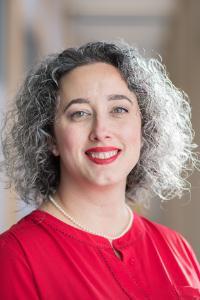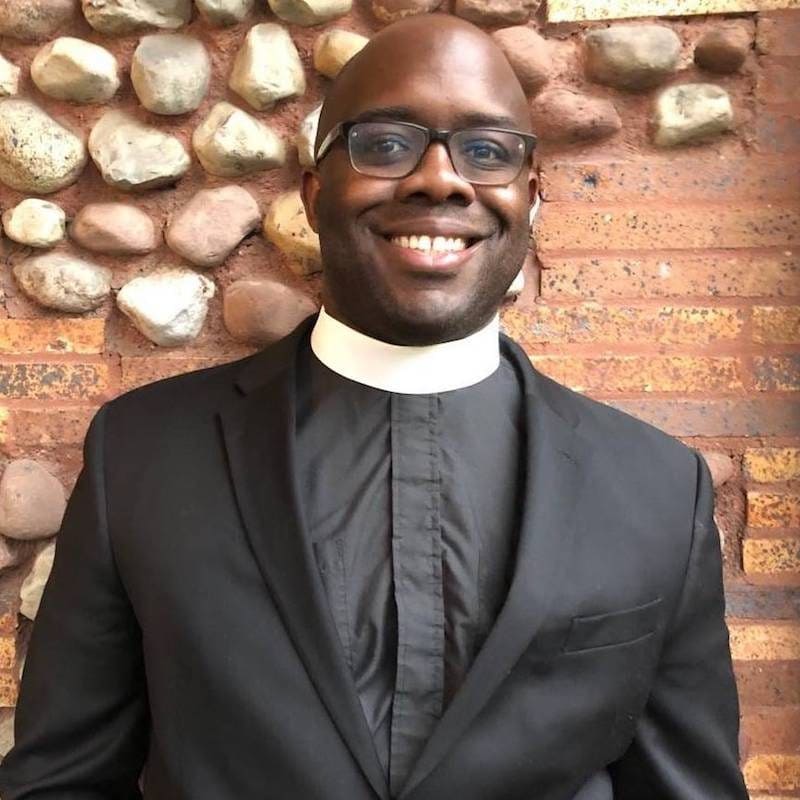At our 2019 Diocesan Convention, Bishop Todd announced the appointments of the Rev. Dr. Esau McCaulley and the Rev. Dr. Emily McGowin as C4SO’s new Canon Theologians, joining the ranks of the Rev. Canon Dr. Scot McKnight and the Rev. Canon Dr. Dennis Okholm in training clergy, administering ordination exams, and working with Bishop Todd on theological content.
Take a moment to get to know Emily and Esau and the expertise they contribute to C4SO.
Q: Give us a sense of your story—what brings you to C4SO and to your desire to serve as a Canon Theologian.
Emily McGowin: My long journey from the Southern Baptist world into the Anglican world was motivated by a number of factors that are common to many of us: a love for the Anglican liturgy, the discovery of a sacramental worldview, and an embrace of the richness offered by the church fathers. But the ministry of Bishop Todd was crucial, too. Along with all of the above, Bishop Todd helped me re-imagine Christian ministry in a more missional and sacramental mode. Once I was ordained to the priesthood and Bishop Todd asked me to consider becoming a Canon Theologian, it was really a no-brainer. I have always understood my vocation to be, at least in part, working as a bridge between the academy and the Church. Serving C4SO as a Canon Theologian is one important way I can do that.
Esau McCaulley: When I first joined the Anglican Church in North America [ACNA], I came into the Diocese of the Gulf Atlantic. But that didn’t make sense after our recent move to Wheaton, Illinois. My wife and I felt Church of the Savior was a good fit. And it was a part of C4SO, so we decided to join C4SO. I’ve been developing a relationship with Bishop Todd over the last two years through speaking at the [Telos Collective’s] Intersection Conference, so that made it a bit easier. I already knew some of the people in the diocese, their missional focus and generous spirit.
I wanted to be a Canon Theologian because it allows me to bring what I do academically in the classroom, my theological reflection, into the Church. When I write for academic journals or for more popular publications like Christianity Today and the Washington Post, I always think, “What does all this mean for the Church?” Now I am addressing that question directly as a Canon Theologian for the diocese. This is a great honor.
Q. What has been your academic focus? Describe your passion for bringing that expertise to bear on the work of our clergy.
Emily: My academic work focuses on the embodied, lived theology of regular Christians. While traditional systematic theology tends to focus on texts and the ideas they contain (i.e., Augustine’s City of God or Karl Barth’s Dogmatics), I’m interested in bringing history and texts into conversation with the lived experience of Christians and their communities. To do that, I use a method of research called ethnography, which is a careful observation and description of people, especially how they speak and live and make meaning. My first book, Quivering Families, used ethnography to explore the theology of the family at work in a segment of American evangelicalism.
I think my expertise in this area can help C4SO clergy because all clergy should learn how to be attentive to the way theology is being embodied in their churches and wider communities. All theology is lived theology. So, I think there’s a way in which ethnography is good pastoral practice and I’d like to explore that more with our clergy.
Esau: I have a two-fold focus. First, in my academic career, I’m a reader and interpreter of Paul. Second, I believe all of us are influenced by our history and experiences. I grew up in an African American context. I’ve always been interested the unique contributions of the African American Christian tradition to the wider body of Christ. I would like to help the ACNA think through a theology of ethnicity that would enable multiethnic and ethnic-specific Anglican churches to develop and thrive.
I think the two books I’ve written exemplify this dual focus—the first one, Sharing in the Son’s Inheritance: Davidic Messianism and Paul’s Worldwide Interpretation of the Abrahamic Land Promise in Galatians, is for an academic Pauline audience. The second book, Reading While Black: African American Biblical Interpretation as an Exercise in Hope [available November 2020], looks at the ways African Americans read the Bible. But even when I’m writing about Paul, I’m writing as an African American Christian.
Q. Part of your role as Canon Theologians includes administering ordination exams. What advice for theological growth would you give to those who are currently in the ordination process?
Emily: It is important to remember that theology and practice are inseparable. As our tradition says, lex orandi, lex credendi (literally, “the law of praying is the law of believing”). In other words, how we pray and how we believe are mutually informing. So, our daily and weekly disciplines of prayer, scripture reading, worship, etc., are vitally important to our theological education—and vice versa. So, read the important works of biblical studies, theology, Anglican history and polity, and more. Study the crucial concepts and be able to articulate vital aspects of Anglican tradition for today. But do not imagine that those things are ends in themselves, or that they can be separated from the simple practices Jesus and his Church have handed on that enable us to receive light and power from the Father.
Esau: It may seem overly simple, but we need to learn to actually read the Bible. When we read the Bible, we have to be aware of our filters that obscure the message God brings to us. A lot of our problems come from not reading the Bible in a contextually aware manner and listening to it. Secondly, you must always read the Bible with the Church. We are not, in the first place, innovators. We are trying to bring the eternal truths of the gospel into conversation with modern issues.
Q. How would you encourage our clergy to keep growing at the intersection of culture, church and theology?
Emily: As important as it is to be conversant in what’s happening in the culture today, I think it is also important to look back at the Church’s history to provide a broader framework for our work. It took almost 300 years—from Christ’s ascension to the Council of Nicaea—for the early Church to wrestle with and come to general agreement upon what God’s revelation in Jesus Christ means for our understanding of God. It took another 125 years for the Church to sort out how to speak of Jesus Christ as both fully God and fully human.
These events tell me that God is at work in the Church, but the process is often very slow, messy, and difficult. The debates we are having today—about gender, sexuality, race, justice, and more—may take some time to resolve. I feel confident they will continue well beyond my lifetime. This perspective should help keep us humble and focused on daily faithfulness. As Bishop Ken Untener of Saginaw wisely said, “We are workers, not master builders; ministers, not messiahs. We are prophets of a future not our own.”
Esau: Be aware of your own biases. Oftentimes, the reforms we want are the reforms rooted in our own personal traumas. The Church isn’t always the area to work out our own personal issues.
Also, I’d tell clergy that we rarely get the church we want. We get the church God gives us. Part of being a priest is getting beyond the church you’ve dreamed of creating. Who are the actual people God has gathered to you? We have to accept our churches for what they are. I’ve never been to the church I wanted, even when I was the pastor. Part of being a pastor is accepting the church’s limitations and avoiding a mentality of “If the church just did A, B, or C, it would be perfect.” I believe this means developing a theology of patience.
Meet the rest of the C4SO Leadership Team.
Emily McGowin is a teacher, scholar, and theologian in the Anglican tradition. She serves as Associate Lecturer of Theology at Wheaton College where she teaches theology to undergraduates. She is also a priest and Canon Theologian in C4SO. Emily specializes in the study of lived religion and what it offers the work of theology. She is the author of Quivering Families: The Quiverfull Movement and Evangelical Theology of the Family. Emily earned a Ph.D. in theology from the University of Dayton, as well as a M.Div. from Truett Seminary at Baylor University, and a B.A. in biblical studies from Criswell College. She has taught religious studies and theology for many years in university, high school, and local church settings. Emily is married to Ron and they have three children.
Esau McCaulley serves as assistant professor of New Testament at Wheaton College in Wheaton, IL. He is one of the co-founders of Call and Response Ministries – an organization dedicated to creating events and materials that equip black Christian leaders and those who support them for effective ministry. Esau is also the director of Next Generation Leadership for the Anglican Church in North America [ACNA], a province-wide initiative committed to raising up and training the next generation of Anglican clergy and lay leadership. Esau has written two books, Sharing in the Son’s Inheritance and Reading While Black (available Nov. 2020). He also writes for numerous outlets including Christianity Today and The Witness: A Black Christian Collective. Esau is married to Mandy, a pediatrician and a Navy reservist. Together, they have four wonderful children.



